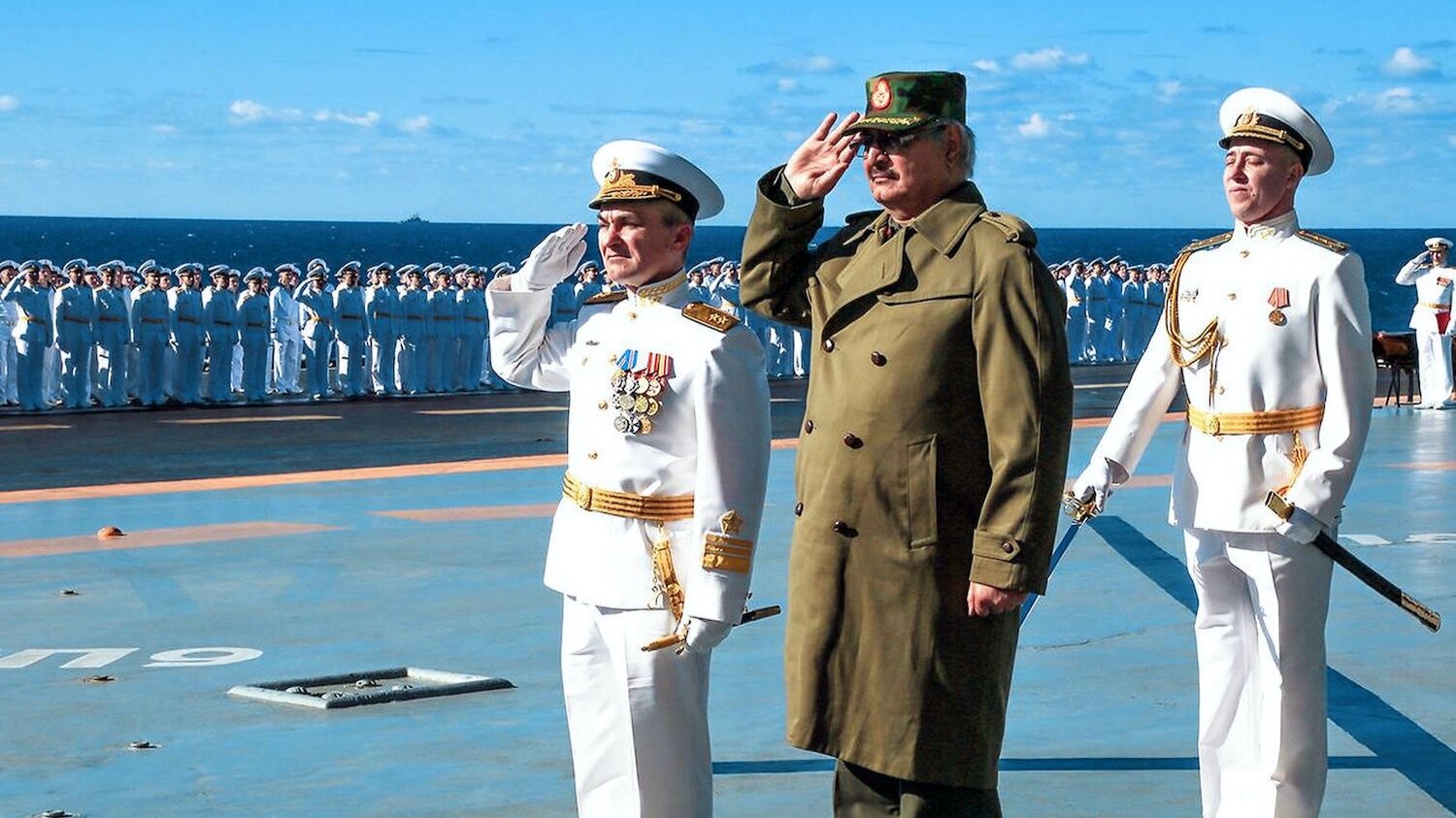Russia’s Role in the Libyan Civil War gives it Leverage over Europe
Photo Credit The New York Times
Published in Foreign Policy on January 18, 2020
A recent joint Russian-Turkish summit in Moscow aimed at forging a cease-fire in Libya broke down after the Libyan warlord Khalifa Haftar left without signing the proposed truce agreement. One of Haftar’s main backers is Russia, and his unwillingness to sign on to the deal raises important questions about not only the degree of influence Russia actually has in Libya, but also how serious it is about bringing an end to the conflict.
Russia first rose to prominence in Libya in September 2019 after it deployed mercenaries to the front lines of Tripoli to back Haftar, sparking concern in the United States and Europe that the Kremlin had finally thrown its hat into Libya’s civil war. Its presence in Libya was strikingly reminiscent of the decisive role it played in Syria, where it backed the regime of President Bashar al-Assad to brutal effect and essentially saved the regime from collapse.
Russia’s inability to push Haftar into a cease-fire could be a sign that it does not have as much leverage over the warlord as it seems or, frankly, that it isn’t trying that hard, and a look at its activity elsewhere in Libya might offer some insight into the reason why.
Moscow has spread itself across the different factions of the conflict, supporting Haftar and engaging his main rival, the Government of National Accord (GNA), as well as former members of Muammar al-Qaddafi’s regime. It is exploiting the conflict by playing each side off of the other in an apparent attempt to put pressure on the European Union to negotiate an end to the comprehensive set of economic sanctions the EU imposed on Russia after it began its intervention in Ukraine in 2014. Russian President Vladimir Putin is set to attend a conference in Berlin on Jan. 19 where he will meet EU member states seeking to negotiate a cease-fire in Libya.
To this end, Russia has allegedly deployed up to 200 Wagner Group mercenaries to buttress Haftar’s forces, in addition to providing funding worth $3 billion. (That money was counterfeit and is primarily in circulation in eastern Libya, a scenario that has turned the country into two financial territories and sowed deeper division.) But that support was never enough to give Haftar the edge. Two hundred mercenaries could break the current military stalemate, but they can’t seize and control territory on their own—never mind take a city like Tripoli.
And Russia’s financial assistance might provide a safety net for Haftar, but it will do little to offset his $25 billion debt, a total that threatens to derail his entire campaign. From this view, it appears that Moscow’s financial and military assistance was never meant to be decisive; it was enough to keep Haftar afloat but not enough to ensure his victory.
Russia’s willingness to play both sides was put on international display when Putin received Haftar’s chief political rival, GNA Prime Minister Fayez al-Sarraj, at a summit in Sochi in October 2019. In contrast, Haftar stormed out of Moscow last week after he was denied the chance to finally meet Putin at the Kremlin, revealing a somewhat testy relationship between the two. Since the Sochi summit with Sarraj, Russia is believed to be close to securing a billion-dollar deal to supply the GNA with 1 million tons of wheat, a move designed in part to boost the country’s economic productivity, but also to break into a market dominated by France and Italy and curtail the EU’s influence in Libya.

